Section: Environment
There are more than 200 results, only the first 200 are displayed here.
-
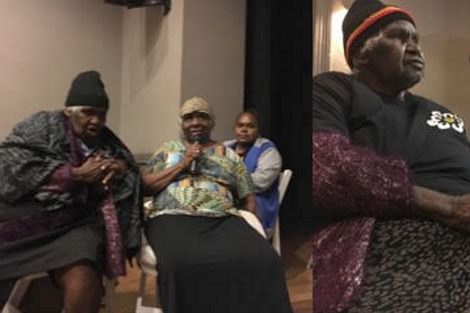
ENVIRONMENT
- Michele Madigan
- 23 September 2016
13 Comments
On Saturday 3 September, in Port Augusta, Yankunyjatjara Elder Edie Nyimpula King was keeping up the struggle, singing again the Seven Sisters inma, strong in its demands for a clean country and protection for the future generations. Its cry: Irati Wanti ... leave the poison! Have nothing to do with it! No radioactive waste dump in our country! But why is such responsibility for country and the health of its people forever so hard? Why is the destruction of country forever allowed to be normalised?
READ MORE 
-
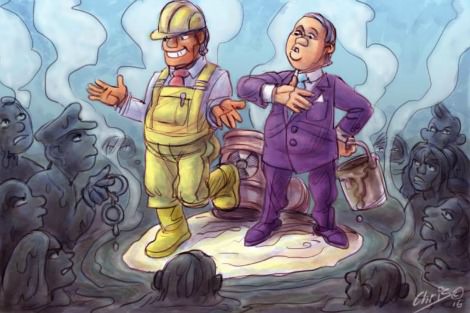
ENVIRONMENT
- Bronwyn Lay
- 23 September 2016
3 Comments
Last year I sat in the offices of one of the judges of the International Criminal Court as we spoke about the possibility of ecocide law becoming an international crime against humanity. An international law against ecocide at its simplest is the criminalisation of mass destruction of the environment due to human action. At that time I heard that the obstacles were not legal, but political. Last week the ICC announced it may hold corporate executives and governments legally responsible for environmental crimes.
READ MORE 
-

ENVIRONMENT
- Megan Graham
- 19 September 2016
5 Comments
Apple has been in hot water for years about the ethics of the manufacture of their devices. Yet iPhone fans gleefully fork out more money every September when the next version is ceremoniously revealed. This circus has become so normalised, most of us hardly blink an eye. How many people ask themselves whether the upgrades in the technology are worth getting a new phone every year? More importantly, how many people question the real-world costs that their purchase entails?
READ MORE 
-
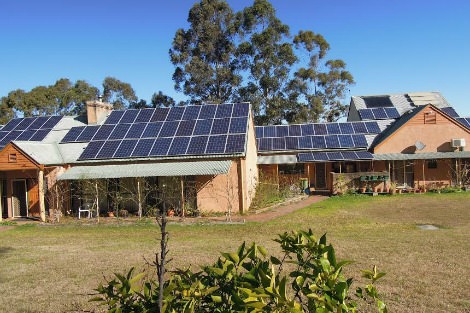
ENVIRONMENT
- Thea Ormerod
- 09 September 2016
10 Comments
With the grip of climate change tightening, few seem to understand the urgency of the crisis. This is why the announcement of over 3500 churches in the UK switching to clean power is so significant. At last, a solution presented by religious communities that matches the scale of the problem. They are providing the kind of leadership for the needed transition to an ecologically sustainable future. Unfortunately, one reason why it is so exciting is that we're nowhere near this in Australia.
READ MORE 
-
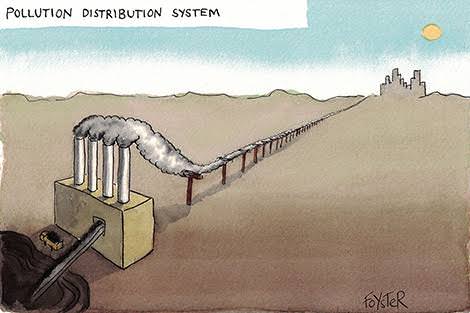
ENVIRONMENT
- Greg Foyster
- 26 August 2016
8 Comments
On 7 July, South Australia experienced a cold snap. As residents turned on their heaters, the still and cloudy conditions meant wind and solar power couldn't contribute much to meeting electricity demand. The last coal plant had closed a few months before, pushed out of the market by renewable energy. As if on cue, the spot electricity price spiked. Instead of a lesson about the danger of too much wind power, it's about the danger of too much market power in the hands of a few big players.
READ MORE 
-
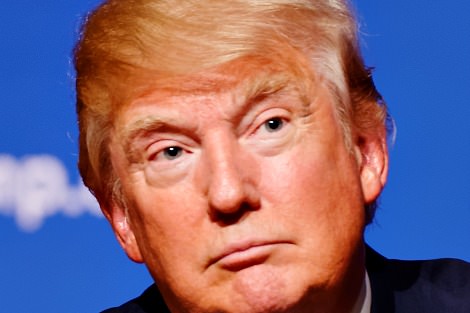
ENVIRONMENT
- Greg Foyster
- 03 August 2016
6 Comments
The neoliberal right is losing political power to the populist right, which isn't filled with the same ideological zeal for free-market capitalism. Suddenly debates can expand beyond the narrow confines of economic growth. Moral and social arguments won't be relegated to the intellectual fringes anymore. Mainstream parties of the left and right, both of which bought into the neoliberal agenda, will have to break their bipartisan dismissal of discontent with the side effects of globalisation.
READ MORE 
-
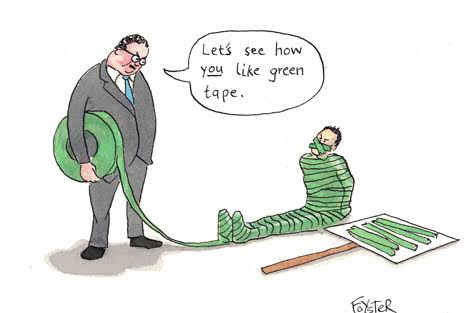
ENVIRONMENT
- Greg Foyster
- 01 July 2016
13 Comments
By the time polls close Saturday, tens of thousands of voters in marginal seats will have received 'election scorecards' from environment groups. Almost all will rate the Liberal Party worse than Labor or the Greens on a range of issues, from protecting the Great Barrier Reef to encouraging investment in clean energy. Privately, some Liberal candidates will be seething - and, if the Coalition wins, they'll have the means for brutal revenge.
READ MORE 
-
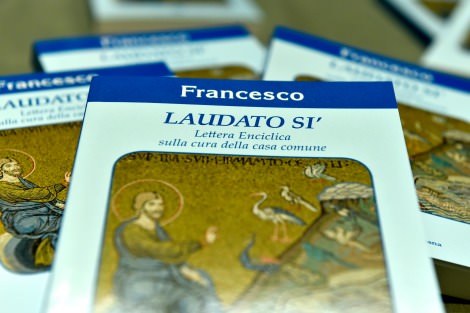
ENVIRONMENT
- Neil Ormerod
- 22 June 2016
23 Comments
It is now 12 months since Pope Francis issued his environmental encyclical Laudato Si'. He opined, 'Although the post-industrial period may well be remembered as one of the most irresponsible in history, nonetheless there is reason to hope that humanity at the dawn of the 21st century will be remembered for having generously shouldered its grave responsibilities.' Where are the Australian politicians who can give hope to the coming generation by focusing our attention on this most urgent issue?
READ MORE 
-
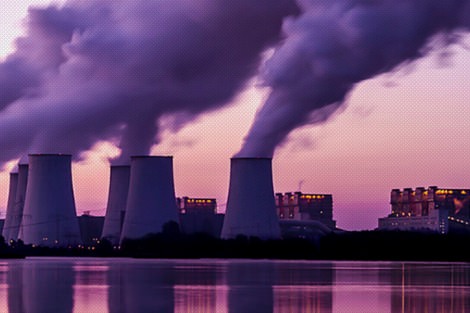
ENVIRONMENT
- Thea Ormerod
- 21 June 2016
4 Comments
An accelerating number of institutions and individuals are moving their money out of planet-heating fossil fuels and into climate solutions. The total assets guided by some form of divestment policy was $3.4 trillion at 2 December last year, 50 times more than what was up for divestment 12 months earlier. It sounds like a lot, but it's a small amount compared to the $100 trillion-plus invested in the usual way. That's our money, in banks and super funds, managed funds and insurance companies.
READ MORE 
-
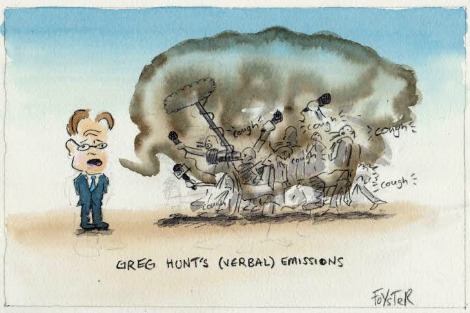
ENVIRONMENT
- Greg Foyster
- 03 June 2016
11 Comments
All politicians and political parties select the statistics and 'frame' that best suits their position. But even among the slippery-tongued ranks of federal parliamentarians, Greg Hunt is in a league of his own. The frustrating thing is that proving him wrong is almost counterproductive. One of the main reasons for stalled action on climate change is the issue has become overly abstract. Debating technicalities with the Environment Minister just reinforces these ways of viewing climate change.
READ MORE 
-
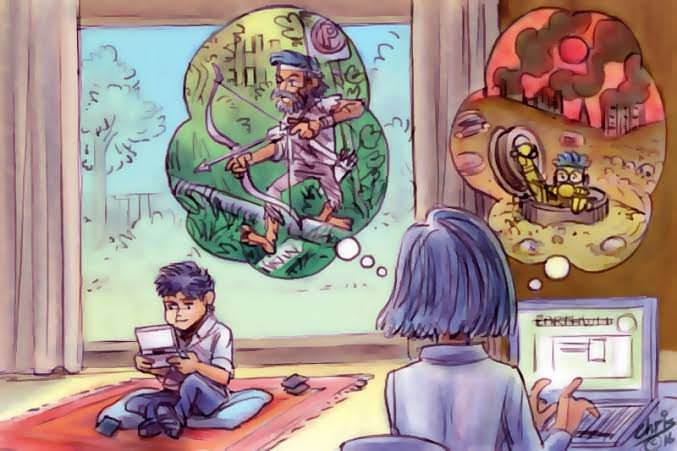
ENVIRONMENT
- Fatima Measham
- 30 May 2016
12 Comments
People understand that some of the solutions for the problems faced by current and coming generations are likely rooted in decisions made now. Future-proofing is not merely anticipation, but intervention on a scale that goes beyond households. It involves design and culture. It demands an international rather than insular outlook. Perhaps this is why gallows humour has seeped into my conversations about the future. I no longer expect our leaders to do something worthwhile about it.
READ MORE 
-
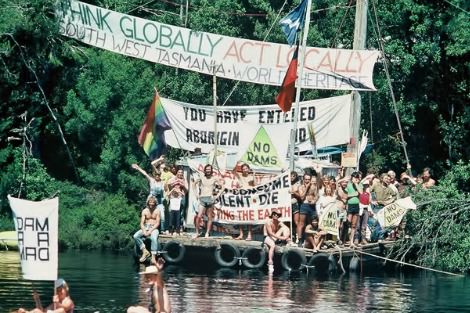
ENVIRONMENT
Many people have hoped that when global warming manifested itself as a concrete threat, politicians would be forced into action. Yet it's becoming horrifyingly clear that the political class is quite willing to let the Great Barrier Reef, one of the natural wonders of the world, slowly die. If we want to save the reef, we're going to have to do it ourselves. The Franklin dam blockade of 1982-1983 transformed the political climate and preserved an iconic river. We need to recapture that energy.
READ MORE 